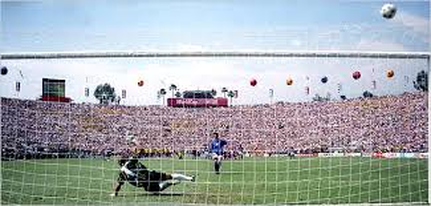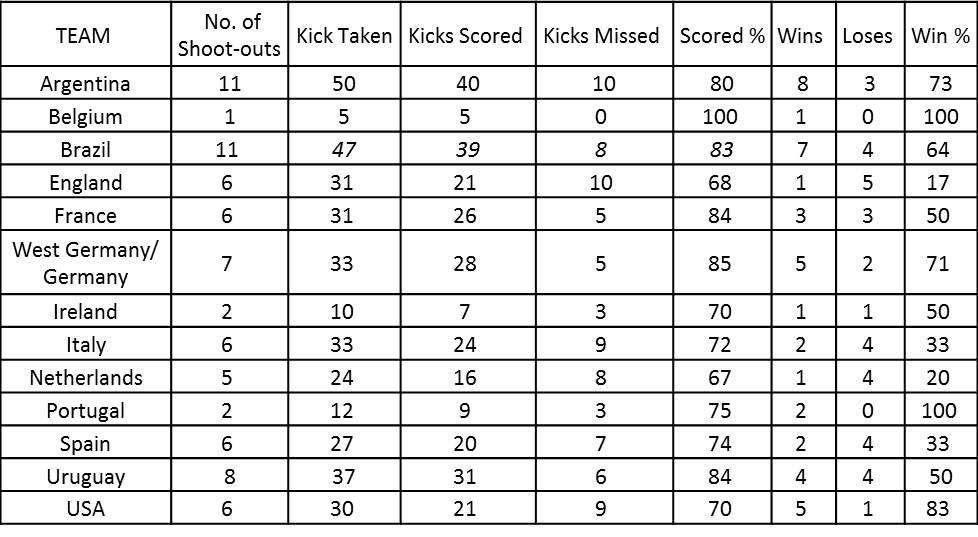
“When it comes to the World Cup final, it is passion, and when it goes to extra time
it is a drama. But when it comes to penalty kicks, it is a tragedy. … Football is a team sport and penalties are not for a team, it is the individual.” - Sepp Blatter, President of FIFA
The coin toss which decided the 1968 European Championship semi final between Italy and The Soviet Union (won by Italy) prompted FIFA to commission a less arbitrary way of deciding the outcome of a dead heat in knockout competition. The penalty shootout, commissioned in 1970, was adopted in order to solve this. Since then critiques have argued about how appropriate the shootout is at deciding certain matches.
The problem with penalties is that they are not a true means for differentiation based on a team’s quality over the course of the game and test only a small subset of an individual’s skills. FIFA are aware of this and have made several attempts to solve the situation. The introduction of Golden Goal Sudden Death was one such attempt however it created a number of unforeseen patterns within the game. Teams were shown to be more defensive compared to normal extra time. The cost of conceding a goal was greater as there was no possibility to equalize thus causing teams to safeguard against a loss which inevitably lead to spot kicks. Golden Goal was abandoned in the mid 2000s.
Another solution is to award the victory to the team with the best match statistics such as greater possession or the greater number of shots on goal. The problem with this incentive is that it is a manifestation of the Lucas critique. By creating a situation, in which the players know beforehand, where a match will be awarded-for example on greater shots achieved – one runs the risk of damaging the game as a spectacle. Player’s behaviour maybe altered and shots maybe attempted or ball possession maybe retained in neutral zones of the pitch where otherwise it would not have taken place in order to push up the statistics in a given team’s favour.
In theory the willingness to attack of the team that loses the penalty shootout is increased thus raising the propensity for more offensive play. Dr Juan Carillo has a paper on pre extra time penalty shootouts, which appeared in the Journal of Sports Economics in 2007, here .The paper makes a great case for altering the sequence of events.
With the heat and humidity of Brazil’s climate players will inevitably look to conserve as much energy in the latter stages giving rise to uneventful extra time periods. It’s too late to start experimenting with changes for the summer but perhaps by Qatar 2022 the laws will have changed. When it comes to deciding a means for improving the spectacle of extra time, firstly FIFA should go the whole 12 yards.

 RSS Feed
RSS Feed